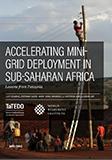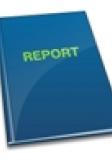Publications
As developing countries look for ways to achieve sustainable energy services, which is essential to lift people out of poverty, the big challenge centers around providing access for all while avoiding past pitfalls without creating new ones. The reality is that this can only occur if there is a fundamental transformation of energy systems along the entire set of resource to energy service chains - and that will necessitate greater energy efficiency and a bigger role for renewables in the global energy mix energy. Competitive and private sector dominated energy markets rely on clear and consistent government energy-environment policies to align their investment decisions with sustainable development objectives.
This paper tries to shed light on how developing countries can carry out energy planning by reviewing the available methodologies and tools, including their potential to integrate rural energy access and encourage the uptake of renewable energy technologies. It also probes how investment needs and cost-effectiveness are reflected in different analytic and planning tools - with a case study on Ethiopia. And it examines the interaction of energy planning and scenario development and how these are applied to informed policy making. The findings suggest that energy planning is essential and feasible. However, support is required to improve data collection and access, develop open accessible modelling tools, and build sustainable national capacity to undertake planning.
Howells, Mark Idwal; Rogner, Hans Holger; Mentis, Dimitris; Broad, Oliver. 2017. Energy Access and Electricity Planning. State of Electricity Access Report. Washington, D.C.: World Bank Group. http://documents.worldbank.org/curated/en/628541494925426928/Energy-access-and-electricity-planning


